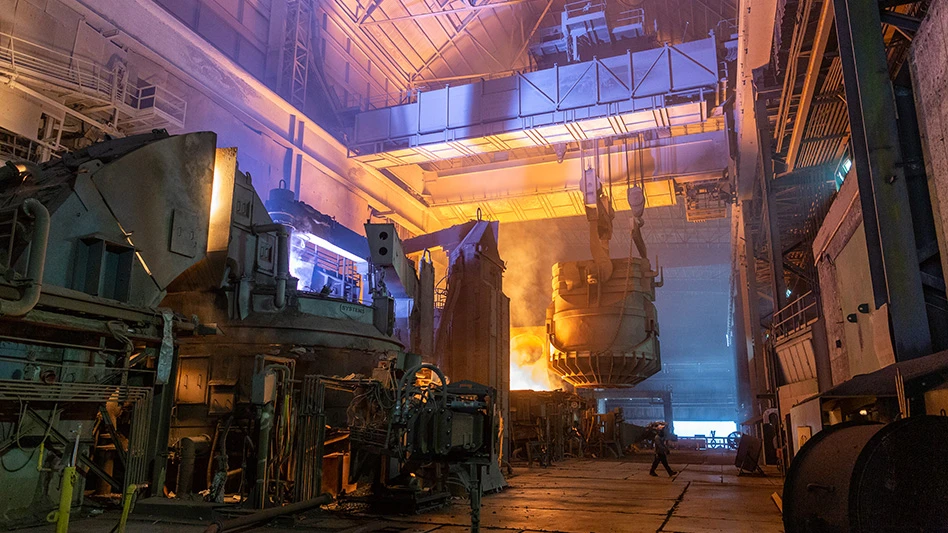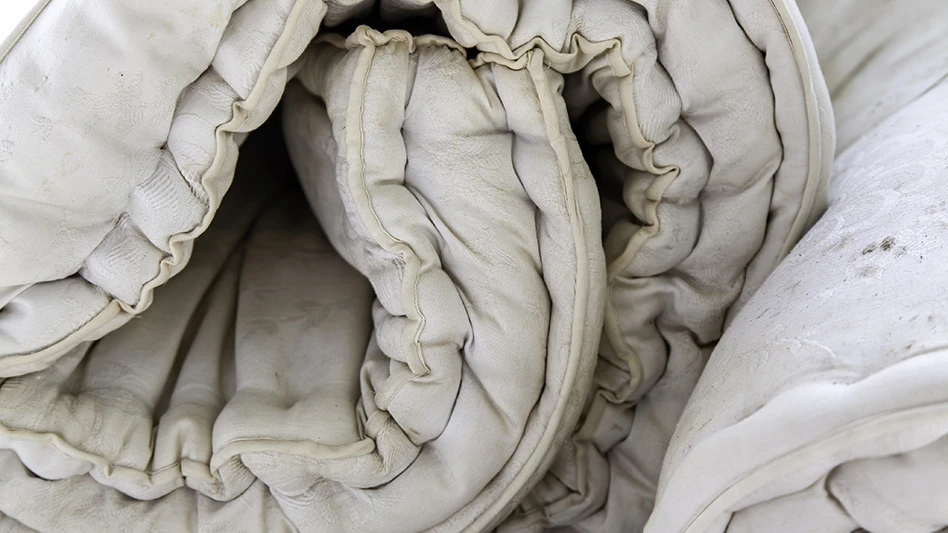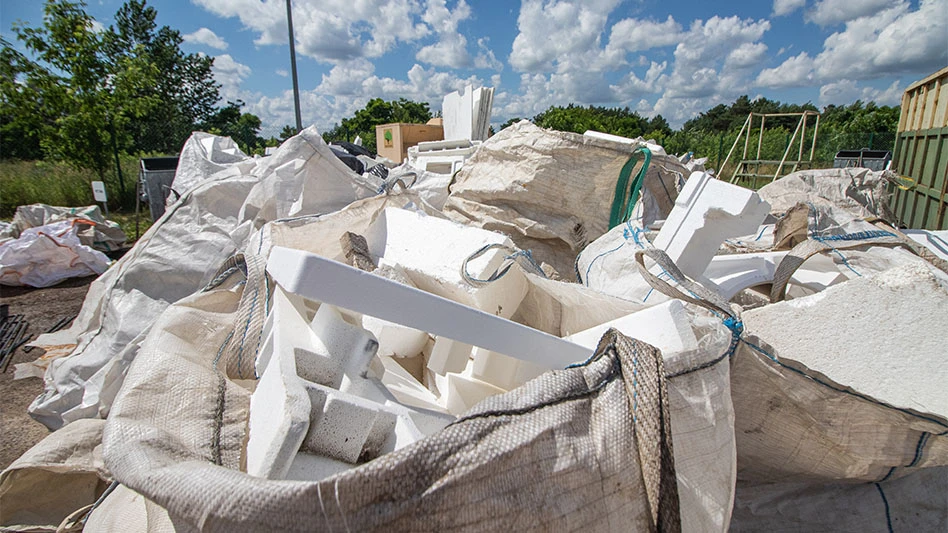
From left, Moderator Luther Wong of the Professional Validation Council of Hong Kong Industries; Jacobo Moreno Lampaya of Valoriza Servicios Medioambientales; Nigel Mattravers of ALBA IWS; and Steve Wong of BillionGroup Technologies at the Eco Asia Conference in Hong Kong.
The Hong Kong Special Administrative Region (HKSAR) government has launched a number of environmental protection measures in recent years, including setting up a recycling fund, building the EcoPark in Tuen Mun and launching the Waste Electrical and Electronic Equipment (WEEE) Recycling Programme, with the aim of achieving long-term goals of waste reduction.
The Eco Asia Conference is one of the highlights of Eco Expo Asia, an expo jointly organised by the Hong Kong Trade Development Council (HKTDC) and Messe Frankfurt (HK) Ltd, and co-organised by the Environment Bureau of the HKSAR Government. The expo, an international trade fair on environmental protection, takes place Oct. 28-31 at the AsiaWorld-Expo in Hong Kong.
A seminar titled “Waste Management & Recycling” was held 29 October at AsiaWorld-Expo, where local and international experts shared new trends in environmental protection technology, and effective waste-reducing measures and technologies in European countries, with a view to bring inspiration to Hong Kong’s green industry development.
The amount of waste electrical and electronic equipment (WEEE) in Hong Kong increased to 70,000 metric tons last year. Nigel Mattravers, director and general manager of ALBA Integrated Waste Solutions (IWS) Limited, a joint venture of ALBA Group based in Germany, said that obsolete electronics are not refuse, and it is important to discover the value of it. With imported German technology, the group can transform WEEE into secondary materials such as plastic, aluminum, copper and iron after collection, separation, detoxification, dismantling and recycling. Mattravers said ALBA processed 7 million metric tons of secondary materials last year with a recycling rate of over 80 percent.
Mattravers pointed out that the flexibility of the facilities is the key factor to success. ALBA has set up multiple production lines according to product types, with dedicated lines for refrigerators and monitors, which help with the effective coordination of modules. Joining the EcoPark programme in Tuen Mun, the company will establish and operate the Waste Electrical and Electronic Equipment Treatment and Recycling Facility, tentatively set to open in 2017, handling products such as televisions, washing machines, refrigerators, air conditioners and computers.
Waste-to-energy is a major way forward for today’s environmental protection technology. Steve Wong, managing director of BillionGroup Technologies Ltd. of Hong Kong imported the technology to transform waste into energy—Refused Derived Fuel (RDF)—thus recovering the calorific value of refuse during combustion, reducing and replacing fossil fuels. He cited examples to show that RDF releases about half as much carbon dioxide as coal.
“RDF is relatively prevalent in European countries, and its application can be incorporated in steel, cement, and asphalt production industries,” said Wong.
As RDF involves mechanical biological treatment (MBT), materials in mixed refuse can be recycled, which helps stabilise biodegradable parts, and extract biogas during the process to be used in power and heat generation. He believes that RDF technology and the MBT process are effective in turning waste into energy, and are common in a large processing plant, yet there are concerns about its application in Hong Kong due to spatial and operational problems. “There might not be enough space in Hong Kong for the construction of large facilities. It is, however, most suitable for the industrial cities in China,” he said.
Jacobo Moreno Lampaya, head of the environmental technology and innovation department for Valoriza Servicios Medioambientales in Spain, discussed a number of anaerobic digestion projects in Spain, which can also produce biogas and convert it into energy. The company has 13 MBT anaerobic digestion facilities in Spain. As they have one facility per one million people in Spain, he said Hong Kong and Shenzhen, with a total population of some 17 million, have great potential to develop this technology.
The issue of waste charging has been under discussion for some years. Bernard Scheffens, CEO of WSS Asia, shared the case of waste charging in the Netherlands.
“It took the Netherlands more than 10 years for the conception, trial, reforms and finally a full implementation. They have learned a lot throughout the process and Hong Kong can definitely learn from their case.”
He stressed that, as policies are a matter of livelihood, the cost should be lowered as much as possible and charged reasonably. At the same time, there should be rewards to incentivise the public to help achieve the goal of waste reduction.
“Municipal waste charging cannot be solved overnight. Its implementation must proceed step-by-step with continuous review and improvements, and the cooperation and communication of multiple parties including the HKSAR government, executive agencies, property management companies, and the public.”
The 10th edition of Eco Expo Asia was held at the AsiaWorld-Expo from 28 to 31 October, concurrently with the HKTDC Hong Kong International Building & Hardware Fair, attracting a total of 480 enterprises.
This year, the fair adopted the theme of “Embracing a Green and Sustainable Future.” The last day of the fair is open to the public for free admission to promote the public’s understanding of environmental protection and the building sector.
Latest from Recycling Today
- Alpla calls 2024 year of recycling growth
- Altilium says agreement puts it on lithium recycling path
- NWRA, SWANA partner to address lithium-ion batteries
- Corinth, Texas, renews waste contract with CWD
- Fresh Perspective: Sarah Zwilsky
- Plastics Industry Association announces leadership changes
- QCC celebrates 50th anniversary
- Venture Metals acquires 2 nonferrous processors





